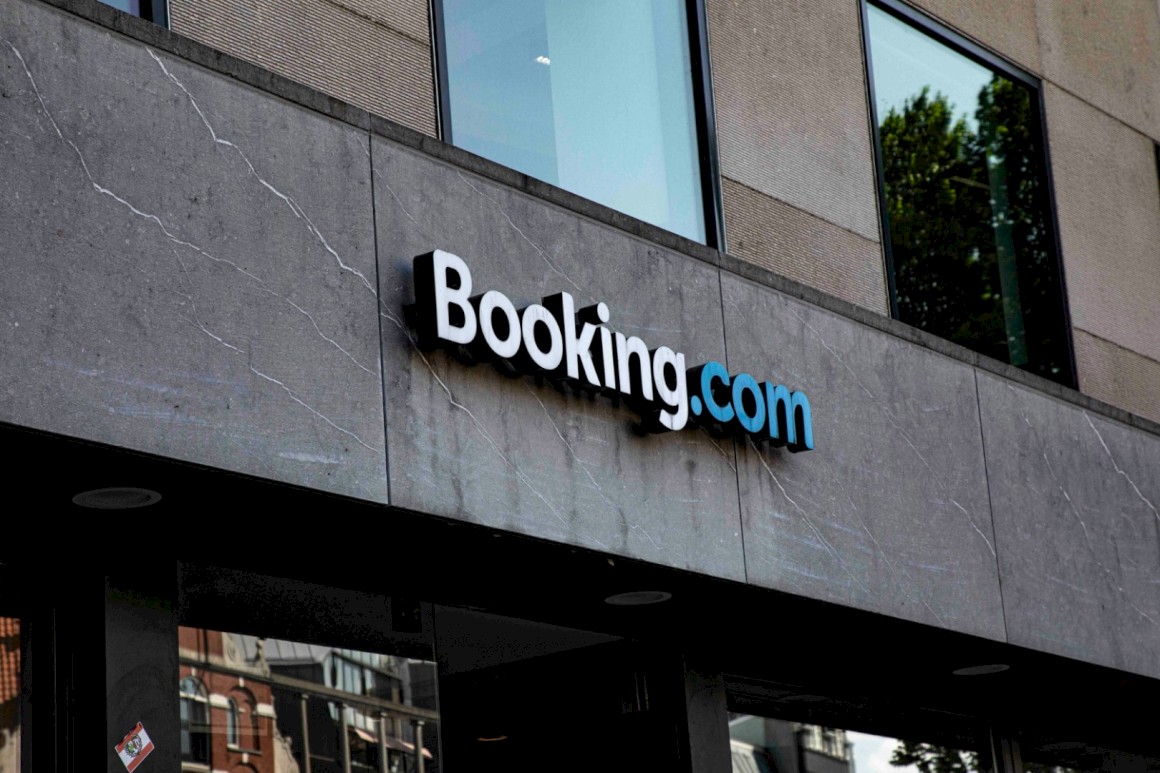Introduction
On 22 March 2024 the Italian Competition Authority (‘ICA’) launched an investigation against Booking.com (Italia) S.r.l., Booking.com B.V. and Booking.com International B.V (‘Booking’) into the alleged abuse of dominant position put in place on the market of online hotel intermediation and booking services.
In the Statement of Objections (‘SOB’), the ICA retains that Booking might be abusing its dominant position on the relevant market based on the application of contractual conditions (general conditions and conditions related to specific partnering programmes), concerning pricing on Booking compared to pricing on other online travel agencies (‘OTAs’) or on the hotel’s own website, monitoring of the compliance with pricing rules, and the unilateral power granted to Booking to apply further discounts on rooms.
The SOB and focus of the investigation
The ICA started the investigation after the denounce of the alleged infringements by Federalberghi (the main national hotels business association) and AICA (the association representing hotel chains and high level independent and family-run hotels), which reported to the ICA a complex strategy put in place by Booking, aimed at limiting the autonomy of the hotels in determining the commercial conditions to the customer, through, inter alia, the application of discounts, visible on the platform, unilaterally applied by Booking on the price of the room, and the request for increasingly higher commissions to improve the hotels’ positioning in the search results on the platform, without the possibility of verifying their actual correspondence.
In the pre-investigation phase, the ICA heard Federalberghi and AICA and involved further OTAs to acquire further elements (Lastminute and Expedia/Hotel.com).
The elements collected in the pre-investigation phase led the ICA to start the proceeding and focus the analysis on two Booking specific programs/conditions, namely the so-called “Preferred Partner” Programme (‘PPP’ - and its extension “Preferred Plus”) and the application of the “Sponsored Discount’”
The object of the investigation
PPP is an optional service offered to partner hotels to have a higher visibility (i.e., ranking on Booking) by paying relatively slightly higher commissions (from the ordinary 15%, to a maximum of 18%, which however does not apply to partners situated in areas of greater touristic attractions, such as Rome and Florence, where a default 18% commission applies by default).
The access requirement on which the ICA focuses the attention is the one according to which the price of the rooms of the PPP-partner hotel on Booking must be “competitive” with respect to prices applied on the hotel’s website or on other OTAs. That is, the price on Booking must be equal to or lower than the price applied elsewhere on the Internet.
According to the ICA, this requirement on external prices is strongly binding for hotels wishing to join. Indeed, Booking applies a tight monitoring and assessment policy on PPP partners, by (i) controlling every 90 days the eligibility of the hotel to the PPP and (ii) regularly sending to PPP-partners updates on how to stay compliant with the PPP, suggesting measures to implement in order to stay in the program. Moreover, Booking reserves itself a period of up to 6 months to check the eligibility in case a partner, which chose to leave the PPP, asks to be readmitted in the program, therefore leaving partners highly uncertain as to their chance to be readmitted in the PPP club if they choose to leave it.
Based on the ICA’s preliminary findings, Booking constantly monitors in detail the cases in which partner hotels apply on Booking’s platform higher prices than those charged elsewhere on the Internet and communicates such situations to partner hotels through the so-called “Performance Dashboard” (available in Booking’s Extranet) with the mapping of "non-competitive external prices".
The investigation of the ICA also focuses on the Sponsored Discount, which is applied irrespective of the PPP, as being set forth in general terms & conditions applied by Booking to all partner hotels.
The Sponsored Discount (or “Booking Sponsored Benefit” – ‘BSB’) is a discount that Booking applies to the price of rooms offered on its platform and is financed entirely by Booking by waiving a portion of the commission received from the partner hotel in order to reduce the price of the room visible to the consumer on the platform.
According to the SOB, Booking lowers the price without the consent of the partner, when the price is higher than the best price available on other websites. On the other hand, when the price is already “competitive” with respect to external prices, Booking may still apply a discount to ensure that the price it offers is the best price available online, but in such a case, the partner hotel must first have agreed to the possibility of Booking applying the BSB at its discretion.
The abusive strategy and the alleged infringements
In the ICA’s view, Booking might be putting in place a complex and unitary abusive strategy implemented through the joint application of the PPP and the BSB, aimed at excluding, or marginalising, the other OTAs from the online hotel intermediation services market, exploiting its market power vis-à-vis hotels, for which it represents an indispensable intermediation channel.
The strategy in particular consists of:
- Ex ante, binding the most remunerative hotels, through their adhesion to the PPP, to offer prices on the Booking platform that are not higher than those offered on other OTAs or on their websites, with the promise of greater visibility and against the payment of (slightly) higher commissions;
- Ex post, unilaterally applying the BSB to hotels, in the event that Booking detects the 'lack of competitiveness' of an accommodation on its platform, thus limiting the latter’s autonomy in defining commercial policies.
According to the ICA, this strategy is highly effective as Italian hotels (most of which are small or medium size ones) have a great incentive to adhere to the PPP program, since they can benefit of a reach they could never otherwise get, against payment of slightly increased commission.
Moreover, partner hotels are substantially forced to comply with the “competitive price” condition as they cannot effectively decide to enter or leave the program in a targeted manner, since the withdrawal can entail not being admitted any more.
In this reference, the ICA also notes that pricing compliance is the only decisive condition set to access and stay in the PPP: other entry requirements do not seem, indeed, to really make a difference – as matched by most partner hotels (this is the case of the “average rating” condition, requiring a minimum of 7/10) – or seem to be also linked to the relevance of external prices (this is the case of the “performance condition”, requiring a score of at least 70% calculated on the basis of a combination of expected annual bookings and travellers demand for the hotel, both influenced by the pricing of rooms).
In the ICA's view, this strategy could amount to an abuse of dominant position, in contrast with Article 102 TFEU and Article 3 of the Italian Competition Act (Law no. 287/1990).
In this regard, the ICA states that Booking intermediates approx. 70% of online hotel reservations in Italy, therefore assuming the platform owns a largely dominant position. As a consequence, the conducts under investigation, according to the ICA, would amount to:
- an obstacle to the access of new competitors in the market and to the permanence and growth of current competitors (as well as partner hotels), as a consequence of the limits to the acquisition or increase of number of intermediated transactions (because of the impossibility of partner hotels involved in Booking’s PPP program to offer more competitive prices on other platforms), and given the absence of incentives to attract partner hotels by offering competitive commissions (as the lower margin generated by commissions would not be compensated by a fair amount of intermediated transactions taken away from Booking);
- a general increase in rooms prices, as PPP-partner hotels would be incentivized to maintain higher prices on other OTAs (and on their website) in order to offset higher commissions paid to Booking and of the need to stay compliant with the “competitive price” requirement of the PPP.
Next steps and Comments
The new investigation seems tightly connected with previous investigations carried out, among other authorities, by the ICA in relation to online hotel reservations services offered by Booking and other OTAs, giving the impression that at least some of the previously addressed criticalities are still present.
Interestingly, the ICA makes explicit reference to parity clauses (which were the object of previous investigations), stipulating that the combination of the elements under investigation generates the same restrictive effects as such clauses.
It this regard, it is worth mentioning that in previous investigations concerning OTAs, parity clauses had been deemed to amount to vertical restrictions, as capable to restrict competition on price and booking conditions both between different OTAs and between different sales channels (OTAs, hotel websites, agencies).
It is also worth mentioning that parity clauses were not only the object of commitments of elimination offered by Booking (and other OTAs) in previous cases, but that the adoption of such clauses has been formally banned by Italy (along with France, Austria and Belgium).
The existence of the national legal ban is clearly providing further ground to blame and condemn the conduct – besides being used by the ICA to try to infer the national dimension of the relevant market.
The ICA has set the deadline of the investigation on 31 May 2025. Next moves by Booking are awaited in the next few months, when the operator will have the chance to be heard and further submit its arguments to the Authority.





Sign in to post comments